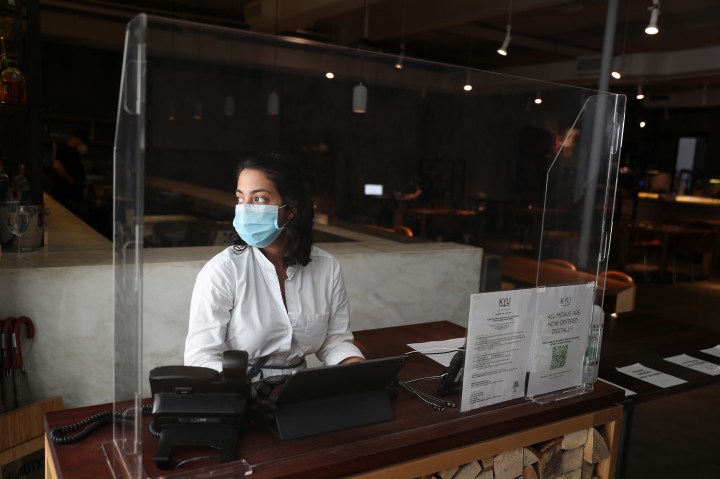
Inside the economy President Biden inherits

President Joe Biden is inheriting an economy that is down 10 million jobs since the start of the pandemic, despite two COVID relief packages. Job losses and business closures have overwhelmed certain sectors like leisure and hospitality — down 4 million jobs — while other sectors remain relatively unscathed.
In fact, some areas of the economy are doing quite well, according to Constance Hunter, the chief economist at KPMG.
“If we look at just high-propensity business formations, we’ve had about 200,000 during 2020,” Hunter said. “The shock of the pandemic really has caused a different need for different goods and services than existed prior to the pandemic.”
Which, she said, will be integral to how the Biden administration will need to approach further economic support.
Hunter spoke with “Marketplace Moring Report” host Sabri Ben-Achour about what we know about business closures and formations during the pandemic — and how the vaccine enters into relief equation. The following is an edited transcript of their conversation.
Sabri Ben-Achour: Do we know how many businesses have made it this far and how many have not made it this far into the pandemic?
Constance Hunter: So business exit is a lagged indicator; it comes out almost two years after. So we have data from 2018. We do not have current data. However, when we look at Yelp data, it seems that there are about 78,000 businesses that closed. Now, this compares to 300,000 businesses which closed during the global financial crisis. And we need to juxtapose that against business formations, which have been surprisingly strong. So if we look at just high-propensity business formations, we’ve had about 200,000 during 2020.
Ben-Achour: How does that square with the fact that we’re down 10 million jobs, though?
Hunter: This is a phenomenon that’s happening all around the developed world. We see a fall in the number of jobs. But we also see, because of fiscal assistance, because of closures, we see a very high savings rate. And, of course, we have low interest rates. And the shock of the pandemic really has caused a different need for different goods and services than existed prior to the pandemic. And so we think that that is a large factor.
Ben-Achour: But I just wonder if the business destruction that has occurred has been concentrated, and if that means something for how we think about offering help to the economy.
Hunter: So yeah, I think a couple of things. One, I think from this Yelp data, which is unofficial data, it seems it has been concentrated in leisure and hospitality. And we know, for example, that there are 4 million fewer leisure and hospitality workers than prior to the pandemic. And so this is an industry that, even those firms that are still open are not operating, by and large, at maximum capacity. So we know that that’s an area of the economy that is still struggling and that needs assistance.
Ben-Achour: Looking at the economy that President Biden is inheriting, do you think additional stimulus will be needed?
Hunter: Well, that really depends on the pandemic. If we are able to dramatically increase the number of vaccinations, that would go a very long way to getting us back on track. And of course, the idea here is we want the virus to be eradicated as quickly as possible because the longer it persists, the longer the suffering occurs and the greater fiscal stimulus is required.
There’s a lot happening in the world. Through it all, Marketplace is here for you.
You rely on Marketplace to break down the world’s events and tell you how it affects you in a fact-based, approachable way. We rely on your financial support to keep making that possible.
Your donation today powers the independent journalism that you rely on. For just $5/month, you can help sustain Marketplace so we can keep reporting on the things that matter to you.












